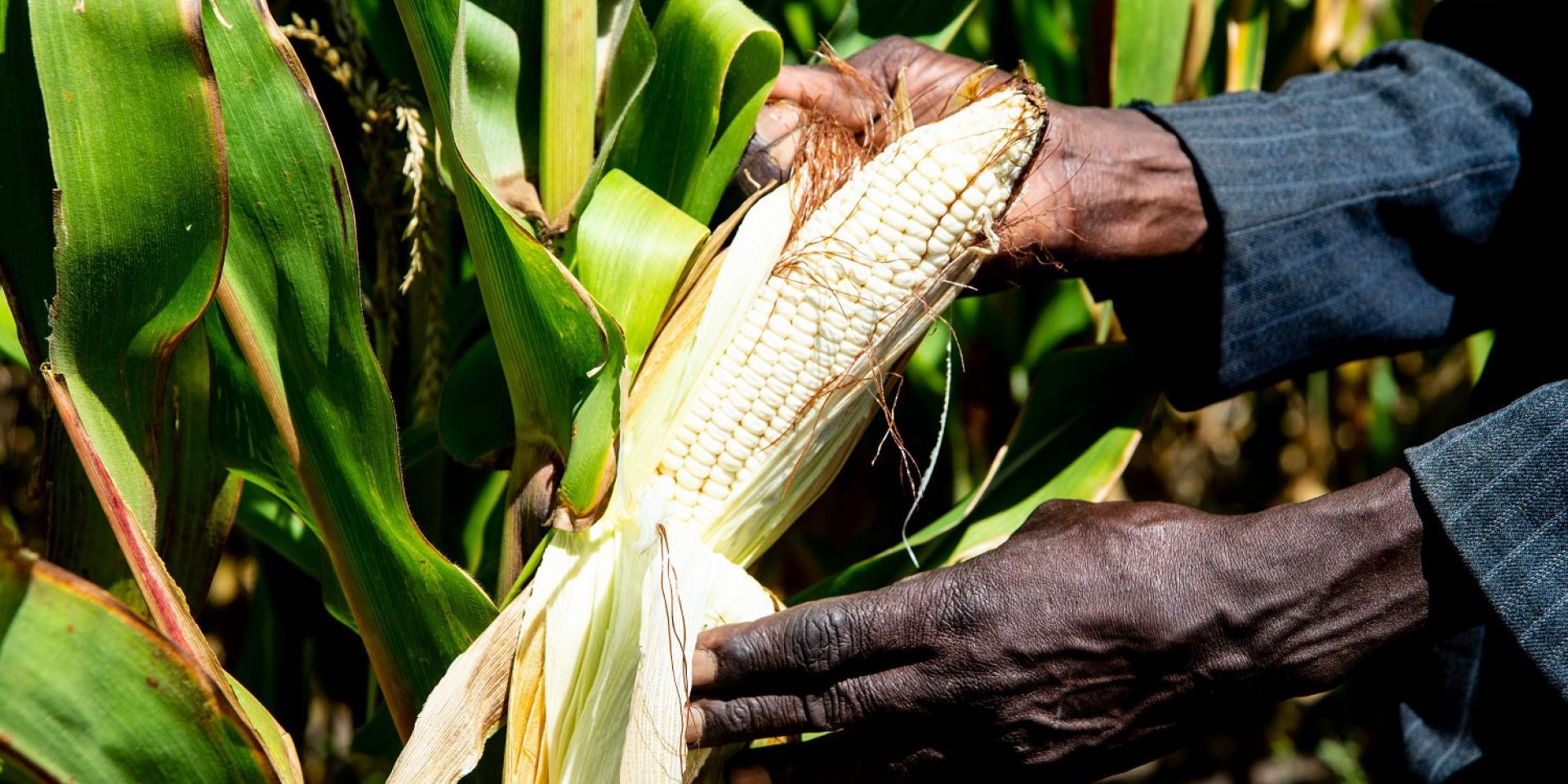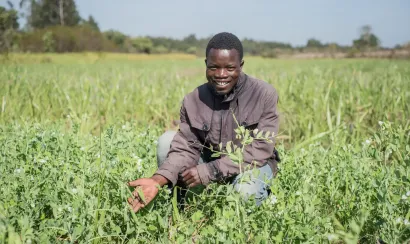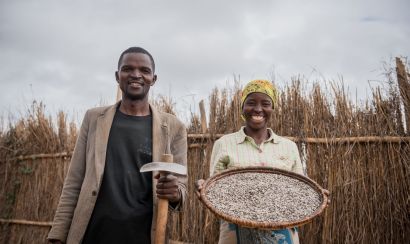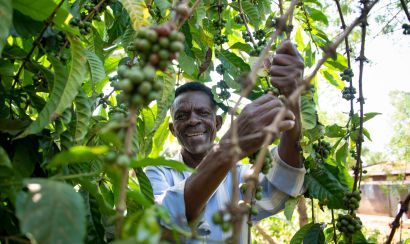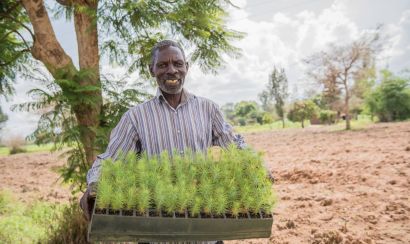Impact Challenge: Innovating to Double Farmer Profit
We kicked off this year by committing to an org-wide challenge to double our impact by 2024 for farmers, using the same resources we have today. We made that commitment because food security is one of the most urgent challenges we face in the world today. We believe that feeding the world requires collective action, and farmers are closest to the solution. By enabling farmers to produce profitably, we can help ensure they keep feeding the world’s growing population.
We measure our success by our ability to make farmers more prosperous; this means putting more money in farmers’ pockets. The impact challenge was a call to deliver more impact over the next three years by adapting to farmers’ changing needs and committing our resources where they matter most.
Adapting to farmer needs
We have traditionally offered farmers a fairly fixed package of services: farmers sign up in groups to get seed and planting supplies on credit, learn planting best practices from a field officer, and then repay slowly over the full growing season. In the beginning, the farmers we served primarily grew staple crops for their families to eat. This model is still at the heart of what we do.
However, after 15 years of operation, we now work in nine different countries and serve farmers with a wider range of needs. Our customers want more flexibility to buy farm products individually, without working in a group. They want to buy products all year round, not just at the main planting time. They are interested in growing more profitable commercial crops to sell, in addition to staples like maize and beans, and investing in assets like trees, which grow in value over time.
So we are listening to what farmers need and designing our programs around them. Here are a few of the ways we are working to improve our services and continue to put Farmers First:
- We’re rolling out new products and services to create more impact and value for farmers. We’re responding to different market needs and tailoring our country operations to give farmers more options about when they can sign-up and which products and services they require.
- We are piloting valuable commercial crops, like avocado and macadamia in Kenya and coffee in Uganda to increase farmers’ access to export markets and unlock higher profits. We’re also increasing agroforestry to help build farmer assets, improve the environment, and sequester carbon in the soil. This will accelerate our work around carbon credits, which provide a source of revenue for environmentally responsible and impactful projects like tree planting. We aim to plant 1 billion trees in the coming decade, generating billions of dollars in assets for farmers.
- We’re creating new channels to increase farmers’ access to products and training. For example, we’re scaling both retail shops and digital services, including USSD farmer enrollment and virtual training by chatbot and WhatsApp to enable farmers to access important information virtually, on the go. Further, we’re developing an app to connect farmers directly to products such as seeds, fertilizer, and pesticides, markets for their crops, and planting advice.
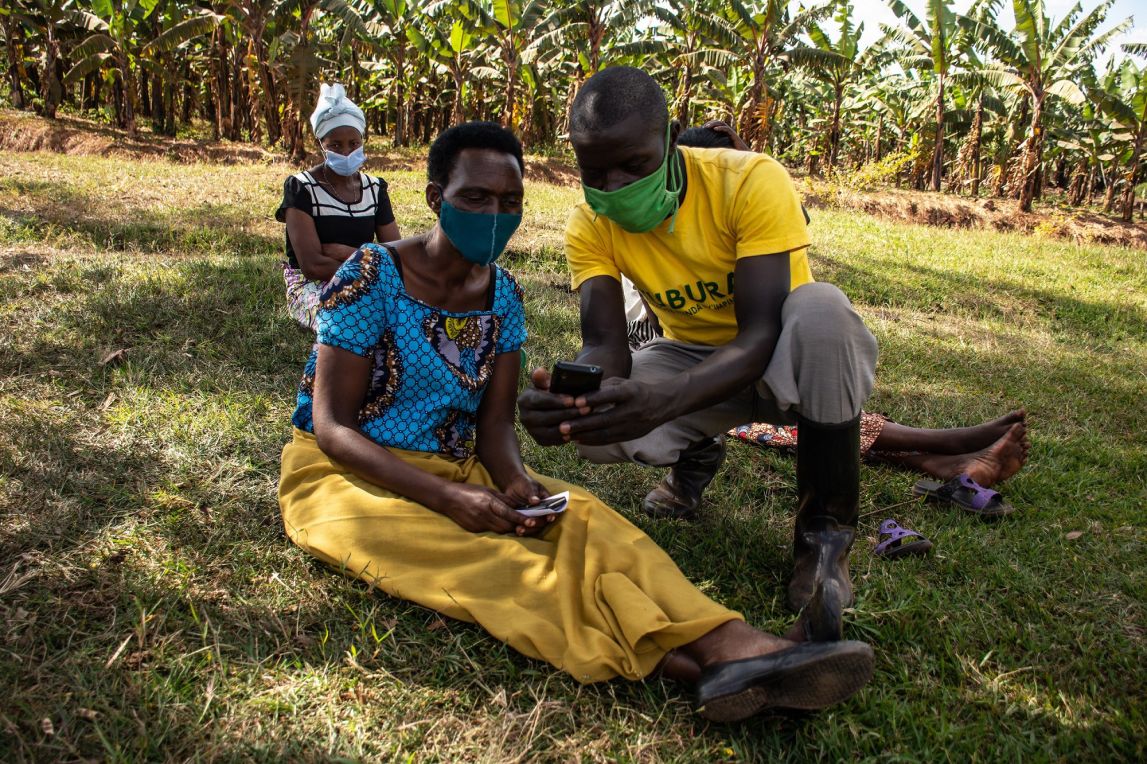
Build on market strengths
Our traditional model of providing farmers products on credit for the main planting season each year has been successful, but we’re challenging ourselves to do better. To consolidate our efforts to enable farmers to increase their farming success, we’ve had to reinforce our approaches in some countries and change tack in others.
In Kenya, for instance, we’re opening hundreds of new retail shops so farmers can access our products all year round. In Rwanda, we’re ramping up research and development efforts on chickens and high-value crops to create a path from subsistence to commercial farming. In Tanzania and Zambia, we are focusing more on agroforestry and carbon credits. In Uganda, we are rolling out extensions services and market access programs for cash crops, which provides farmers with better returns than maize. We believe the best way to serve farmers is to build on the strengths of each market.
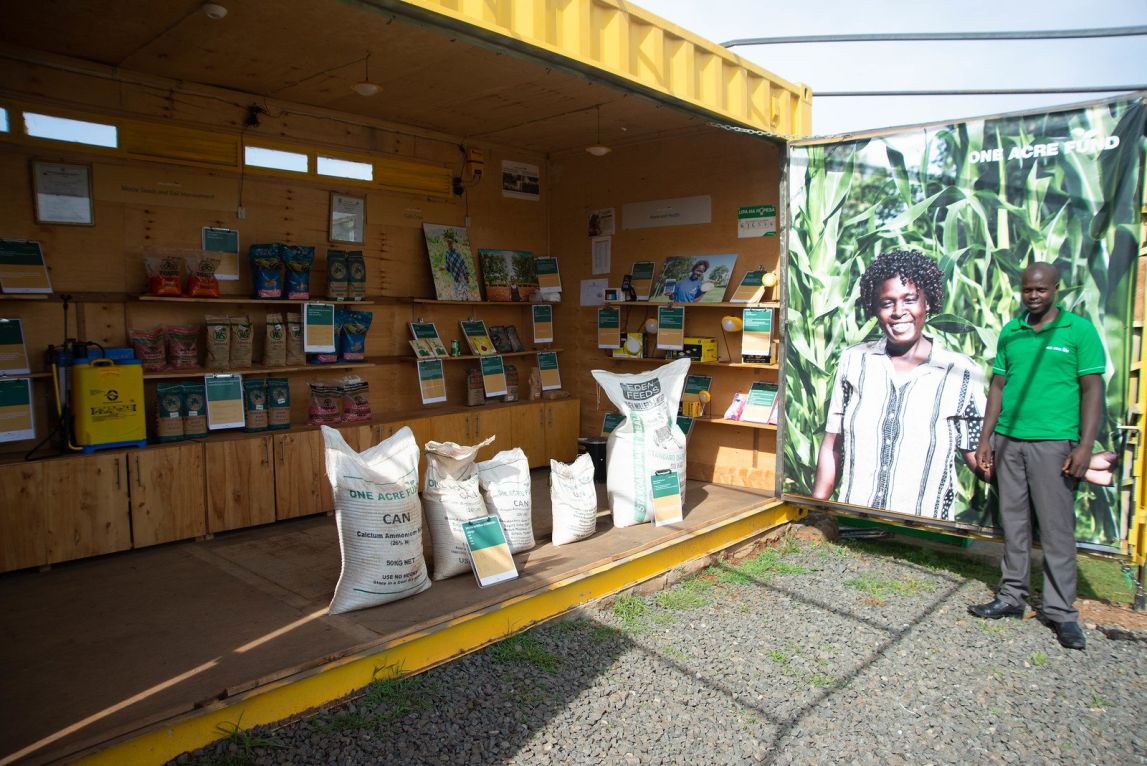
The first phase of our work focused on reaching as many farmers as we could. As we gear up to double our impact over the next several years and serve 10 million farmers by 2030, we’re building country programs that respond to specific needs based on farmer feedback.
Every farmer can succeed.
In the 15 years we’ve worked with smallholders in rural Africa, we’ve seen what farmers can do with access to quality fertilizer and seeds. By enabling smallholders to produce surpluses, farmers like Aida Mkakilwa, from Iringa in Tanzania, can comfortably feed their families and invest their extra earnings in profitable home ventures to lead better quality lives.
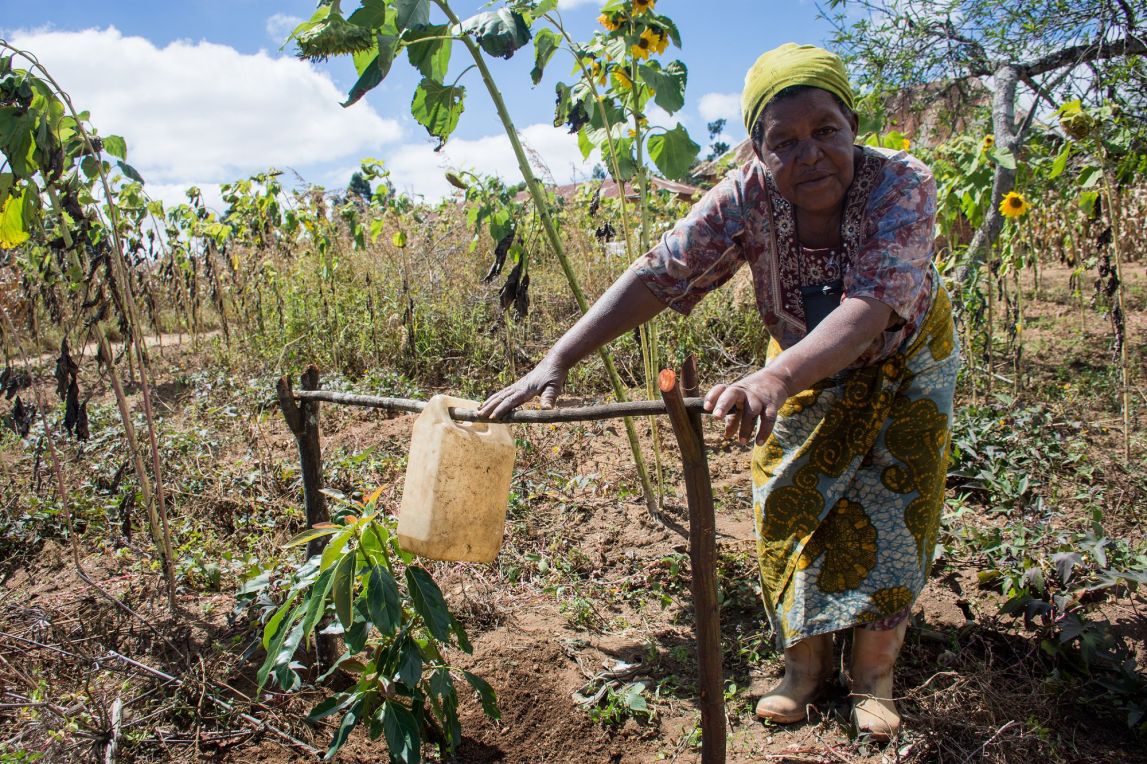
Aida enrolled with One Acre Fund in 2019. For most of her life as a farmer, she planted using local seeds, harvesting an average of three bags from an acre of land.
“When planting season came this year, I was ready with my seed and fertilizer. I have benefitted from new knowledge and modern farming techniques for maize and other crops like beans and avocado,” says Aida, who harvested nine bags in her first season with One Acre Fund, tripling her earlier yield.
Aida also grows fruit to sell and rears chicken and pigs. Last year, she received free avocado seedlings from One Acre Fund. With more than 90 avocado trees planted, Aida is excited about how well they are growing. “My children are very excited about avocado and want to grow some of their own,” says Aida.
As we work on the commitments we’ve set for the years ahead, we are guided by a singular conviction: as with Aida, we can help more farmers realize their dreams for a prosperous life — that farming can be an economically viable way of earning quality livelihoods.
Farmers First,
Andrew Youn
Executive Director of One Acre Fund.
